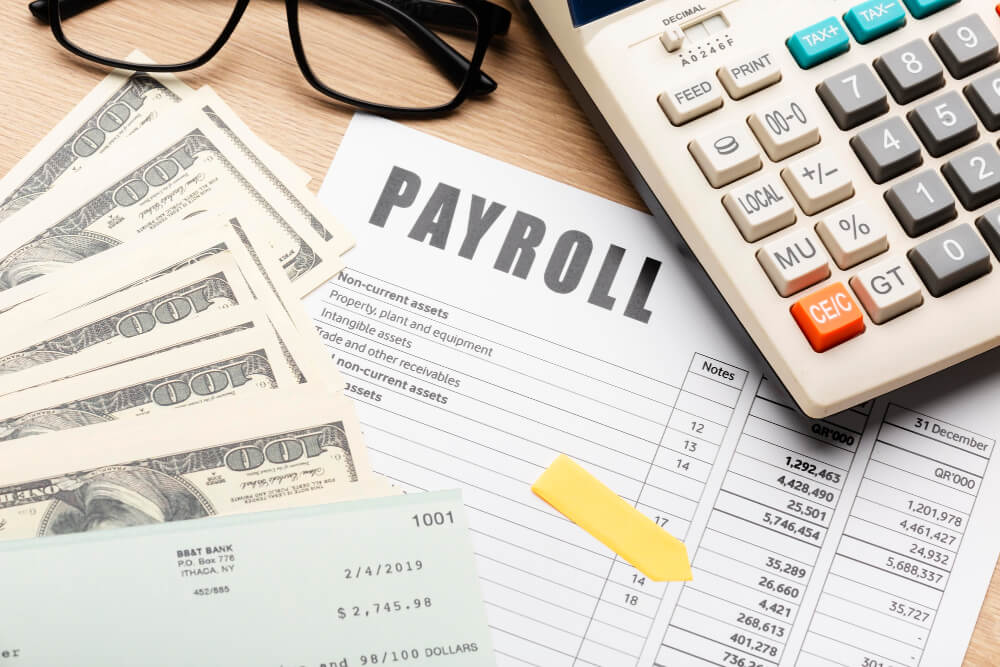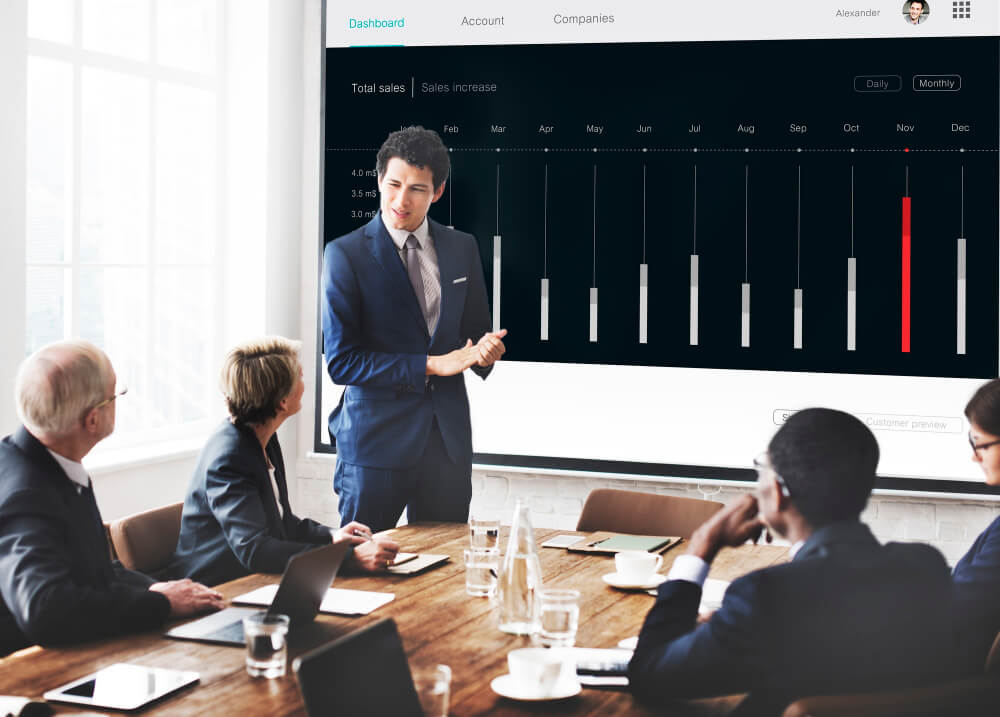Services

Statutory Accounts
Statutory Accounts, also referred to as ‘Year end Accounts’ or ‘Annual Accounts’ are a set of financial reports required to be prepared and submitted to Companies House by all limited companies.
A limited company is required to submit this set of reports to Companies House within 9 months of the business year end. The business year end will be set by Companies House upon incorporation and can be changed if required.
A copy of the statutory accounts must also be sent to:
- All shareholders in the business
- Anyone who attends the company general meetings
- HMRC (as part of the Corporation Tax return)
What do the statutory accounts include?
- A directors report
- A profit and loss account
- A balance sheet
- Notes about the accounts
- Important disclosures for the users of the accounts
Why use Strategic Accountants for my statutory accounts preparation?
As with many areas of accounting and tax, there are so many important factors to consider when preparing statutory accounts. Given this, we would recommend these are completed by a trained and competent professional. This is the reason accountants do years of exams, to ensure that they have the capabilities to prepare these documents accurately.
At Strategic Accountants we have a team of competent professionals who can prepare your statutory accounts to the highest standard. Each set of accounts will be reviewed and signed off by a qualified accountant, and as a firm we are regulated by a professional body – therefore you can have peace of mind that they have been done correctly.
Finally, the directors of the business are ultimately responsible for the information submitted to Companies House, therefore it is imperative that you are satisfied with the reports as incorrect filings could lead to fines and legal action. It therefore makes sense to find a qualified and regulated accountant to prepare the statutory accounts for you (look no further, you’ve already found us!).

What is personal tax?
As a UK resident you are required to pay personal tax in the UK on your worldwide income. This includes income from employment, pensions, investments and savings.
In order to report your income you may be required to complete a personal tax return (also sometimes referred to as a Self Assessment tax return).
Who needs to prepare a personal tax return?
You will be required to file a personal tax return with HMRC if in the most recent tax year (from 06 April to 05 April the following year) you:
- Worked for yourself as self-employed and earned more than £1,000 in the tax year
- Were a partner in a partnership business
- Were a minister of religion under any faith or denomination
- Were a trustee or the executor of an estate
- Received a notice from HMRC to file a personal tax return
Received untaxed income such as:
- Rental income
- Tips and commission
- Income from savings, investments and dividends
- Foreign income
An individual may also opt to complete a personal tax return if they wished to claim specific income tax reliefs or provide evidence of being self-employed in order to claim tax-free childcare or the maternity allowance.
If you are required to complete a personal tax return you will need to firstly register with HMRC so that you receive your Unique Tax Reference (UTR).
How do I register for a personal tax return with HMRC?
Welcome to the world of self-employment!
For many people, the process of registered as self-employed or needing to submit a self-assessment can be daunting – however registering with HMRC is relatively easy. Here are 5 easy steps to follow in order to register:
First of all, double check whether you are classed as employed or self-employed for tax purposes using HMRC’s ‘Check Employment Status for Tax’ tool
Register for an online account with HMRC by using the online registration portal on gov.uk
HMRC will then provide you with a 10-digit Unique Taxpayer Reference (UTR) which should arrive in the post
You can create a Government Gateway account with HMRC using your UTR and personal details
Once your Government Gateway account is created you will be able to access a range of online services such as completing your self-assessment and making tax payments to HMRC
Where can I find my UTR (Unique Tax Reference)?
When registering for self-assessment, HMRC will issue you with a 10-digit Unique Taxpayer Reference (UTR) which will be posted to your registered address.
Once registered you will be able to find your UTR via your HMRC online account. It can also be found on previous tax returns submitted as well as correspondence received from HMRC.
Should you not be able to obtain this information it is best to call HMRC on the self-assessment helpline in order to request a copy of your UTR.
What are the late filing penalties?
If you fail to submit your personal tax return ahead of the deadline (even if there is no liability!), HMRC will apply the following penalties:
- £100 immediately after the deadline is missed
- Once the return is more than 3 months late – £10 per day for a maximum of 90 days
- If the return is 6 months late – the higher of £300 or 5% of the tax due
- Once the return is more than 12 months late – a further £300 or 5% of the tax due (whichever is higher)
How do I pay my tax liability?
You can make payments to HMRC using online banking, debit card, BACS, cheque, direct debit (if set up with HMRC) or at your bank (if you have a paying-in slip from HMRC). Details of how to make the payments, including the references required can be found on the gov.uk website.
It is important to note that you will receive a late payment penalty from HMRC if the payment does not reach HMRC by the required deadline.
Top 5 items to have ready for your accountant
P60 or P45 – this will have been provided by your employer if you received a salary during the relevant tax year.
Dividends received – if you received income distributed from a company in which you held shares, you will need to keep a record of this income.
Bank interest – details of any interest accrued on your personal bank or savings accounts (you can usually get a tax year statement from your bank!).
P11D – claims of expenses or benefits in kind received in the course of your employment.
Any other income – details of any other income which you have received personally. You are required to declare your worldwide income on your personal tax return.
Key dates
Note the following key dates:
31 October (following the end of the tax year) – If you have not signed up for completing your tax return online you have to send HMRC a paper tax return by the 31 October. There are penalties if you send the form after this date, even if you have no tax to pay.
31 January (following the end of the tax year) – All online tax returns must be filed and submitted on or before this date, this includes any balance of payment due for that return and any first payments on account towards the following tax year. There are penalties if you miss this deadline for your return, even if you owe no tax or have already paid all of the tax you owe.
31 July (following the end of the tax year)- For those who make payments on account, the second payment for the tax year ending the previous 5 April is due.
If you have any questions regarding deadlines or payments on account, let us know! We can advise you on your specific circumstances.

What is Corporation Tax?
Corporation Tax is the tax paid to HMRC as a result of profits made by a business. This could be as a result of the businesses trade, selling business assets or making a profit on business investments. All limited companies which are trading will be required to submit a Corporation Tax return to HMRC.
How much do I have to pay?
The current Corporation Tax rate is 25% (previously 19%). There are reliefs available for businesses with profits under £250,000 per annum, we can support you to ensure you are taking advantage of these! The Corporation Tax liability is payable on the taxable profits for the relevant accounting period. Unfortunately HMRC won’t tell you how much you need to pay, therefore you are required to self-assess your business, calculate the taxable profits, inform HMRC of this amount and then make the payment of the liability.
What is included in the corporation tax service?
- Calculation of taxable profits
- Advice and guidance on any tax efficiencies or reliefs available
- Preparation of the Corporation Tax return
- Submission of the Corporation Tax return to HMRC
- Liaising with HMRC on Corporation Tax related affairs
Key dates
Accounting period
your accounting period is the dates which are covered by your company tax return. It can’t be longer than 12 months and is normally the same as the financial year covered by the company’s annual accounts.
Payment deadline
the Corporation Tax liability must be paid to HMRC before 9 months and 1 day following the end of the accounting period.
Filing deadline
the Corporation Tax return must be submitted to HMRC within 12 months following the end of the accounting period.
Where can I find my UTR (Unique Tax Reference)?
When registering your business, HMRC will issue you with a 10-digit Unique Taxpayer Reference (UTR) which will be posted to your registered business address.
Once registered you will be able to find your UTR via your HMRC online account. It can also be found on previous tax returns submitted as well as correspondence received from HMRC relating to Corporation Tax matters.
Should you not be able to obtain this information it is best to call HMRC on the Corporation Tax helpline in order to request a copy of your UTR.
What are the late filing penalties?
- £100 immediately after the deadline is missed
- Once the return is more than 3 months late – an additional £100
- If the return is 6 months late – HMRc will estimate your Corporation Tax liability and add a 10% penalty of the unpaid tax
- Once the return is more than 12 months late – an additional 10% penalty of the unpaid tax
How do I pay my tax liability?
You can make payments to HMRC using online banking, debit card, corporate credit card, direct debit (if set up with HMRC) or at your bank (if you have a paying-in slip from HMRC). Details of how to make the payments, including the references required can be found on the gov.uk website.
It is important to note than you will receive a late payment penalty from HMRC is the payment does not reach HMRC by the required deadline.
Why use Strategic Accountants for my corporation tax services?
Failure to calculate your Corporation Tax liability correctly could result in your business paying too much tax, which will impact your business, or not enough tax which could land you in trouble with HMRC (best to avoid!). It is also imperative that the returns are submitted to HMRC ahead of the relevant deadline. Any errors could result in HMRC inspections, as well as fines or penalties – these can become time consuming and expensive to resolve!
By using Strategic Accountants your Corporation Tax return will be prepared carefully to ensure your Corporation Tax return is completed correctly and you pay the appropriate liability to HMRC. Calculating the liability is not as simple as taking 25% of the profits as there are further adjustments required to the return, therefore it is advisable to allow a professional to assist with the preparation of the Corporation Tax return. Our experience and depth of knowledge can ensure you are operating as tax efficiently as possible!

What is bookkeeping?
HMRC require all businesses, including limited companies and self-employed, to maintain sufficient accounting records as evidence.
This includes the record-keeping of relevant documentation and classification of income and expenditure relating to the business.
Maintaining adequate business records is vitally important from both a compliance and business performance perspective, this includes:
- Ensuring business records are correct to prepare year end submissions and tax returns.
- Maintaining business records that meet HMRC’s expected standards in the case of a HMRC inspection.
- Evaluating business performance against budgets.
- Monitoring profits and taxes to reduce the risks of non-compliance with HMRC.
- Staying on top of credit control to maintain a healthy cash flow.
90% of all business failures are due to cash flow issues, according to the Office of National Statistics. Correct business records will allow you to identify where this may become an issue for the business and make decisions to avoid these issues.
Why do I need assistance with bookkeeping?
Bookkeeping is the foundation of your business records and therefore it is important this is done correctly and accurately by a trained individual. Whilst bookkeeping generally isn’t the most complicated of tasks, it is very easy to get in a mess with if you don’t know what you are doing. Without accurate bookkeeping being completed it is impossible for business owners to review the performance of their business or make informed business decisions.
We strongly believe that business owners time is best spent in applying their expertise to run their business successfully – not spending significant amounts of time completing bookkeeping. By using cloud accounting software and collaborating with a qualified accountancy firm you can automate this process and save significant amounts of time which can be spent running your business!
By outsourcing your bookkeeping to a qualified accountancy firm you can rest assured that the bookkeeping is completed correctly and in line with HMRC’s requirements.
Why use Strategic Accountants for my bookkeeping?
Benefits of outsourcing your bookkeeping to us include:
Defined processes
as a starting point we will discuss responsibilities so that it is clear who is meant to be carrying out each task and what information we may require in order to complete the bookkeeping.
Agreed timetables
timetables are agreed to ensure we are working to complete the bookkeeping in a timeframe that suits your business. This may be for reporting purposes or to allow you to meet internal requirements.
Vastly experienced
our team has decades of experience in completing bookkeeping services for business in a variety of sectors.
Cost effective
we can save your business significant amounts compared to members of your team completing the bookkeeping internally or recruiting an internal bookkeeper.

What is payroll?
Payroll is the process of preparing wages to make payments to employees and the associated submissions and tax payments to HMRC.
Ensuring that the payroll is prepared accurate is essential for both HMRC compliance and building good relationships with employees – after all, no employee wants to be underpaid due to an oversight by their employer!
The process of preparing the payroll can become very manual and a time consuming task. We believe that business owners can use their time more wisely and therefore we offer a fully outsourced payroll function to remove this burden.
Do I need to outsource my payroll?
In short, no. Business owners could complete their payroll internally, however as with many accountancy and taxation services there are significant amounts of knowledge required in order to ensure that all factors have been considered and the payroll has been prepared accurately. We would therefore highly recommend outsourcing payroll unless it is being prepared by a suitably qualified individual who is up to date with the most recent government updates and legislations.
What's included in the payroll service?
The services we provide will vary depending on the size of the business, number of employees and different schemes/benefits in place. Our typical payroll offering includes the following:
- Preparation of payslips
- Calculation of National Insurance and PAYE liabilities
- RTI submissions to HMRC
- Advice and guidance on minimising tax liabilities through the payroll
- Other Payroll related services

What is management reporting?
Management reports are a summary of reports that a business would prepare in between it’s accounting periods in order to get up to date financial information. These are generally either prepared monthly or quarterly and allow for businesses to make more informed decisions throughout the year, rather than waiting until the company year end.
Who may need management reports?
Start-up businesses
who are seeking fast growth and need regular financial insights to make pivotal informed business decisions.
Owner-managed businesses
where the directors want to ensure they are maximizing their dividend income whilst ensuring they are not taking ‘illegal dividends’ or becoming overdrawn their directors loan account.
Fast-growth businesses
who have received significant investment and are required to deliver regular management reports to their investors.
What is included in a set of management reports?
- Profit & loss account
- Balance sheet
- Aged payables
- Aged receivables
- Cash summary
- Key performance indicators relevant to the business
Bespoke timetables
At Strategic accountants, we understand the importance of reliable and punctual management reports. That’s why we take pride in our ability to establish bespoke timetables in collaboration with our clients. Our dedicated team works closely with you to ensure that your management reports are delivered promptly, every time.
Why use Strategic accountants to prepare your management reports?
If we are completing other services for you such as bookkeeping, VAT and annual accounts, it is likely we will have a good understanding of your business and the types of transactions that are going through the business. This means we can give constructive feedback on the reports once prepared and highlight key areas of interest.

VAT Services Tailored to Your Business Needs
At Strategic Accountants, we understand the complexities of value-added tax (VAT) regulations and their impact on your business. We have the experience needed to provide comprehensive VAT return services designed to streamline your compliance processes and optimize your VAT strategy.
Our VAT Services Include:
VAT Registration and Deregistration
Whether you’re a new business needing to register for VAT or considering deregistration, we can guide you through the process and ensure compliance with HM Revenue & Customs (HMRC) regulations.
VAT Compliance Review
Our VAT experts will thoroughly review your VAT processes and documentation to identify potential areas of non-compliance and provide tailored solutions to mitigate risks.
VAT Return Preparation:
Let us eliminate the hassle of VAT return preparation. Our experienced team will accurately calculate your VAT liabilities, complete your VAT returns, and submit them to HMRC on time every time.

Virtual & Fractional CFO Services
All businesses need expert financial advice in order to thrive. But if you’re a smaller or new business, you may not be able to afford a full-time Chief Financial Officer/Expert business advisor—which means you’re missing out on vital expertise when you need it most.
Virtual CFO Services to the rescue.
Virtual CFO, sometimes called “fractional CFO,” is a remote consultant who provides high-level outsourced CFO services without the full-time price tag.
Our virtual CFO service help you grow your business with a combination of data-based financial advice, business strategy, strategic relationships, assistance with debt and equity funding, and more.
Does Your Small Business Need a CFO?
An accountant’s job is to prepare timely and accurate financial reports to determine your tax liabilities and current financial health.
A virtual CFO does that and a whole lot more.
By analyzing profitability, planning for business expansion, increasing market share, developing new products and services, and more, a virtual CFO helps you create a financial strategy that will pave a path to future success.
When do you need a fractional CFO?
- If you are looking to grow your business profitably and sustainably
- If you need an expert to lay the groundwork for sound financial systems
- If you want to mitigate risk and ensure the right processes are in place from the start
As your partner in finance, a virtual CFO is an investment in the future health of your company.
Straight Talk’s Virtual CFO Services
Our fractional CFO services play an important role in helping our clients reach their goals.
Services include:
- Financial forecasting and Budgeting : By studying your financial data, industry trends, projections, and business goals, we’ll create projections to help you meet your short and long-term targets.
- Profitability analyses. We identify ways to optimize your profitability by analyzing the various revenue streams of your business.
- Customized KPIs dashboards. We create interactive, at-a-glance charts and graphs that show how your business is performing against your key performance indicators (KPIs).
- Business strategy advising. Bringing an objective, agenda-free perspective, we assess your business goals and challenges and provide with clear guidance for continued growth.
- Cash flow analysis. We perform cash flow analysis and offer solutions if it’s not sufficient to meet your operating expenses.
- Expense management. We create systems to track employee-initiated expenses and implement technology to analyze data for less waste and more efficiency.
- Internal controls consulting. We provide an independent assessment and set up controls that promote accountability and minimize the risk of errors, omissions, delay, and fraud.
- Team training. We provide internal training to ensure that you and your team are united in goals for achieving growth and profitability.
- Other. Our CFO service can also include assistance with debt and equity financing, due diligence support, accounting staff placement, and accounting software implementation and migration.
